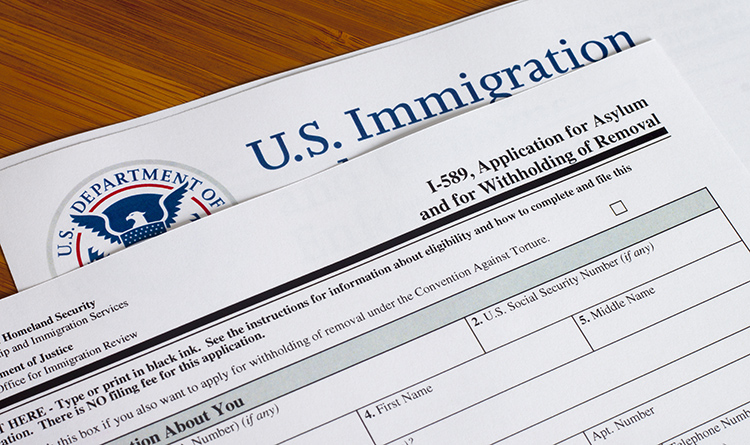Supreme Court allows Biden to end remain-in-Mexico policy; chief justice's opinion joined by Kavanaugh, liberal justices

Image from Shutterstock.
The U.S. Supreme Court ruled for the Biden administration on Thursday when it allowed repeal of the remain-in-Mexico policy for asylum-seekers.
Chief Justice John Roberts wrote the majority opinion, joined by Justices Brett Kavanaugh, Stephen Breyer, Elena Kagan and Sonia Sotomayor.
Roberts said the rescission of the policy did not violate the Immigration and Nationality Act, which says the federal government “may” require immigrants arriving from the contiguous territories of Mexico and Canada to return there.
A federal appeals court ruling to the contrary “imposed a significant burden upon the executive’s ability to conduct diplomatic relations with Mexico,” Roberts said.
The Supreme Court ruled in Biden v. Texas, which considered whether the Biden administration could end former President Donald Trump’s policy requiring asylum-seekers to remain in Mexico while their cases are pending.
The policy was formally known as the Migrant Protection Protocols. A federal judge had required the Trump administration policy to remain in place during litigation, and the Supreme Court had refused to lift the order in August 2021. At that time, the Supreme Court cited likely success for the argument that rescission of the remain-in-Mexico program was arbitrary and capricious.
In October 2021, the U.S. Department of Homeland Security gave a more comprehensive explanation for its decision to end the policy. The 5th U.S. Circuit Court of Appeals at New Orleans nonetheless kept the remain-in-Mexico policy in place. The appeals court ruled the new justification for repeal was not a reviewable final agency action under the Administrative Procedure act.
The Supreme Court disagreed, finding that the policy rescission could be reviewed and there was no violation of the law.
The word “may” in the federal law gives the administration discretion to repeal the remain-in-Mexico policy, Roberts said.
Roberts said the contiguous territory provision “is discretionary—and remains discretionary” even though a separate provision requires detention of immigrants who are “not clearly and beyond a doubt entitled to be admitted.”
Roberts said Congress did not intend to tie the hands of the executive branch. He noted that the immigration law provides for a third option: parole into the United States.
One of the dissenting justices, Justice Amy Coney Barrett, said she agreed with the majority on “the merits—but not with its decision to reach them.” She said she would remand for lower courts to reconsider whether they had jurisdiction.
None of the three other justices who joined Barrett’s dissent joined the sentence about agreeing on the merits.
Hat tip to SCOTUSblog and Law360, which had early coverage of the case.
See also:
ABAJournal.com: “Racial and ethnic justice cases reveal ideological rift in the courts”



